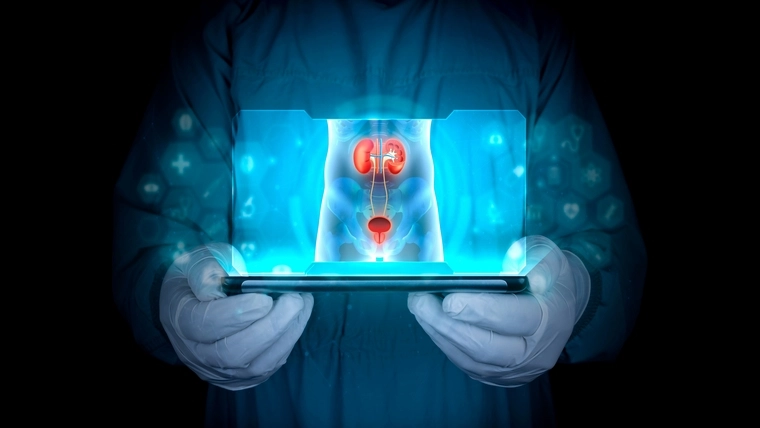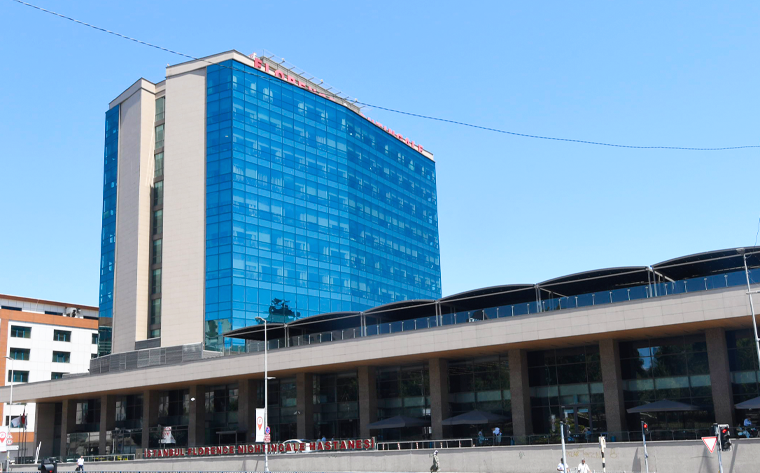
What is the Nephrology Department and What Diseases Does It Cover?
Nephrology is a medical specialty that deals with kidney health and diseases. The nephrology department examines kidney functions and diagnoses and treats kidney diseases. This department covers diseases such as chronic kidney disease, acute renal failure, nephrotic syndrome, glomerulonephritis, as well as kidney-related conditions such as high blood pressure and kidney stones.
About the Nephrology Department
The department of nephrology focuses on the structure, functioning and diseases of the kidneys. Nephrologists provide diagnosis, treatment and preventive health services to ensure healthy kidney function. A multidisciplinary approach is adopted, considering the effect of the kidneys on other organs in the body.
Who is a Nephrology Specialist and What Are Their Duties?
A nephrologist is a doctor who specializes in kidney diseases. These specialists are competent in the diagnosis and treatment of kidney diseases and manage patients' advanced treatment methods such as dialysis and kidney transplantation. They also inform and guide patients on the prevention and management of kidney diseases.
What Diseases Does Nephrology Cover?
Nephrology is a branch of medicine that focuses on the health and diseases of the kidneys. This specialty covers many diseases and conditions that affect the kidneys. Here are the main diseases that the nephrology department deals with:
- Chronic Kidney Disease (CKD): This disease is characterized by the decline of kidney function over time and can lead to kidney failure if left untreated.
- Acute Renal Failure: This condition, which occurs with sudden loss of kidney function, requires immediate medical attention.
- Nephrotic Syndrome: This condition results in the kidneys losing excessive amounts of protein, resulting in swelling and other complications.
- Glomerulonephritis: This disease, which occurs as a result of inflammation of the glomeruli in the kidneys, leads to deterioration in kidney functions.
- Polycystic Kidney Disease: A genetic disease in which many cysts form in the kidneys. Over time, these cysts can damage the kidney tissue.
- Kidney Stones: The presence of hard masses made up of minerals and salts in the kidneys can cause severe pain and urinary tract infections.
- Kidney Inflammation (Pyelonephritis): Inflammation of the kidneys due to bacterial infection. If left untreated, it can lead to serious health problems.
- Diabetic Nephropathy: A condition that occurs as a result of damage to the kidneys caused by diabetes. It is common in diabetic patients and can lead to kidney failure.
- Hypertensive Nephropathy: Damage and dysfunction in the kidneys resulting from long-term effects of high blood pressure.
- Lupus Nephritis: It occurs when lupus, an autoimmune disease, causes inflammation in the kidneys.
- Interstitial Nephritis: It is a disease caused by inflammation of the interstitial tissue of the kidneys.
Nephrologists play an important role in the diagnosis, treatment and management of these diseases. They adopt a multidisciplinary approach to improve the quality of life of patients and preserve kidney function. Early diagnosis and management of these diseases with appropriate treatment methods are of great importance for kidney health.
What are Nephrology Examinations?
Nephrology examinations include various tests and examinations to evaluate kidney functions and diseases. These include blood and urine tests, kidney ultrasound, biopsy, and imaging methods such as renal scintigraphy. These tests help to examine the structure and functioning of the kidneys in detail.
What Methods Are Used in Nephrology Treatments?
Nephrology treatments vary depending on the type and severity of the disease. Treatment methods include medication, diet and lifestyle changes, dialysis, and kidney transplantation. While medication is used to preserve kidney function and slow the progression of the disease, dialysis and kidney transplantation are life-saving treatments in cases of kidney failure.
When Should You Go to the Nephrology Department?
Early diagnosis and treatment of kidney diseases are very important to prevent disease progression and serious complications. If the following symptoms or conditions are present, it is necessary to consult a nephrologist:
- Frequent Urination or Difficulty Urinating: Urinating more or less often than usual, or pain or difficulty urinating, may be signs of kidney problems.
- Blood or Foam in the Urine: Blood or foam in the urine may indicate a kidney dysfunction and requires immediate medical evaluation.
- High Blood Pressure (Hypertension): High blood pressure, especially if it is not under control, can be a symptom of kidney disease. A nephrologist should be consulted to evaluate the effects of high blood pressure on the kidneys.
- Swelling (Edema): Swelling in the ankles, hands, face or other parts of the body may indicate that the kidneys are not properly regulating fluid balance.
- Extreme Fatigue and Weakness: Decreased kidney function can lead to the accumulation of toxins in the body, which can create a feeling of extreme fatigue and weakness.
- Having a History of Kidney Disease: People who have had a history of kidney disease should have regular nephrology check-ups. This is important to prevent the disease from recurring or progressing.
- Diabetes or Family History of Kidney Disease: People with diabetes and those with a family history of kidney disease should have their kidney health checked regularly.
- Abnormalities in Kidney Function Tests: If abnormalities in kidney function are detected in routine blood or urine tests, a nephrologist should be consulted for further evaluation.
Early diagnosis of kidney diseases allows for effective treatment and management strategies to be implemented. Therefore, it is recommended that people who experience any of the above symptoms or have risk factors consult a nephrologist.
What is Done During a Nephrology Examination?
During a nephrology examination, the doctor evaluates the patient's medical history and symptoms. A physical examination is performed and any necessary laboratory tests and imaging methods are performed. As a result of the examination, detailed information about kidney functions is obtained and an appropriate treatment plan is created.


